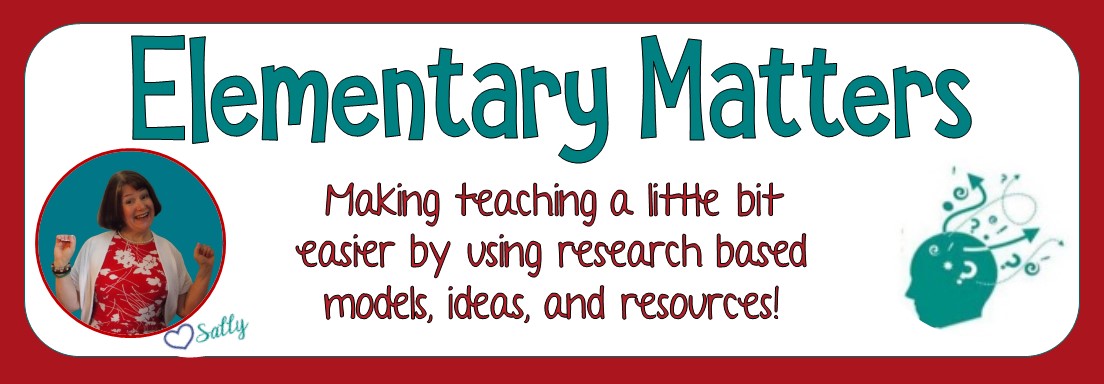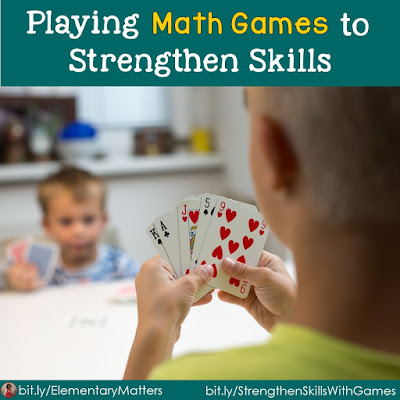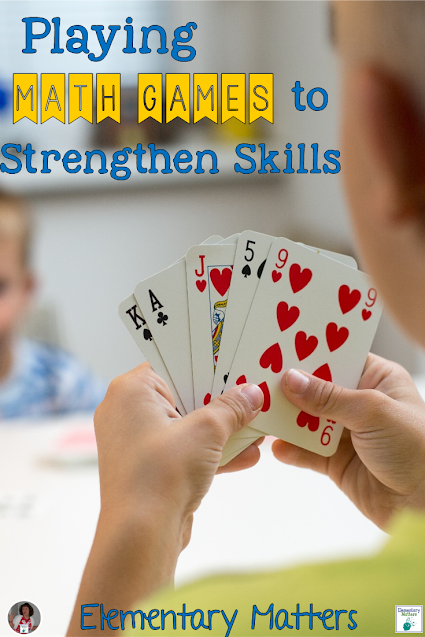I find games to be a great way to learn and develop skills.
Brain research tells us that adding the element of fun helps to connect the memory. Isn't that a great reason to play learning games?
I like to teach a game during small group instruction time, so I can watch the children play and make sure they are focused on the learning goal. I'll have them play a couple of times with guidance before I let them play on their own.
After a game has been introduced and practiced, it will be available as a choice during math stations or centers. There are times when certain children are assigned a particular game as well.
It's a good idea to allow the children to play games below their level, as these are important skills that should be mastered in order to perform the higher skills with ease. Just because the skills are easy for the child doesn't mean they don't have value! In fact, if the game isn't somewhat easy, it won't be fun for the children. Also, if the game isn't somewhat easy, the children will be more likely to make mistakes, which won't help them master the skills. I've learned "practice makes permanent," and we don't want to make incorrect skills permanent, do we? If you've ever had to unlearn a bad habit, you'll know just what I mean!
I have a series of BINGO games that I designed to go along with second-grade skills. They all have a sports theme, which is a big draw for the kids. I find once they learn the format of a particular game, it takes less time to teach a similar game, meaning more time practicing each skill!
As mentioned above, once the students know the format and how the game works, they can play similar games to strengthen similar skills. It just so happens that I have several math games that follow this same format with different sports themes that can be found here:
Still looking for more math games to strengthen their skills?
Here are plenty more Math games, including several freebies! Math Games Category






